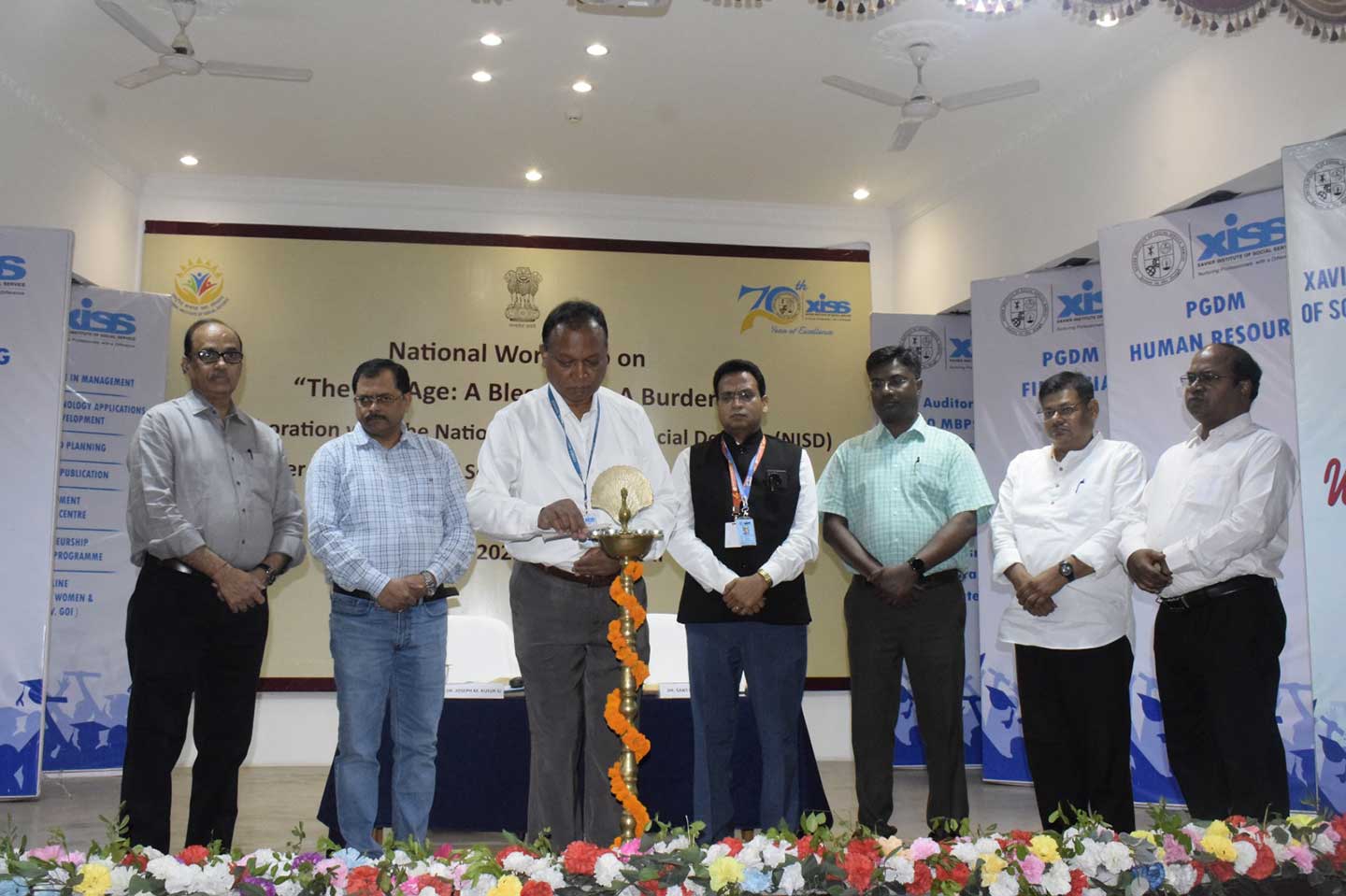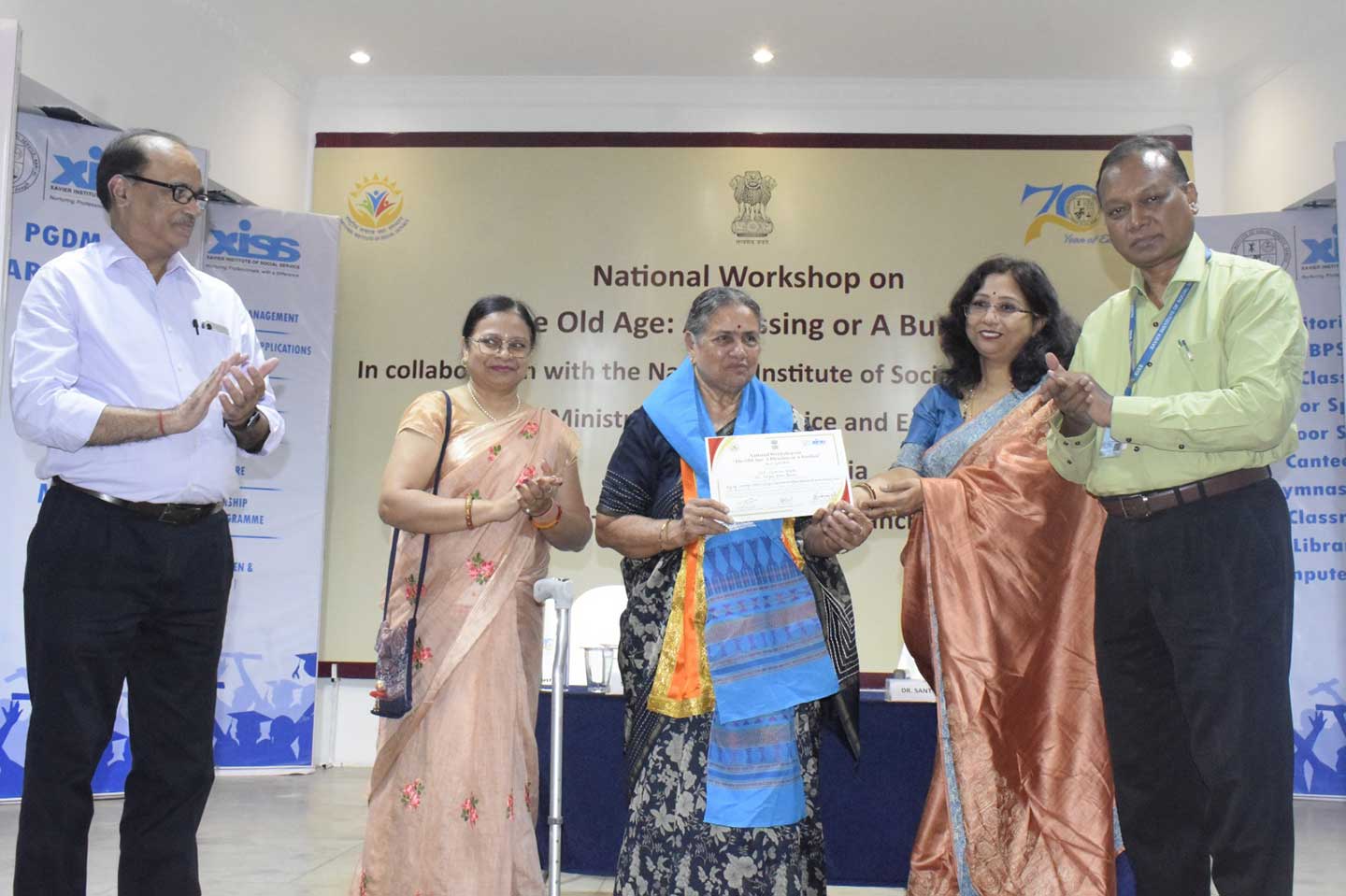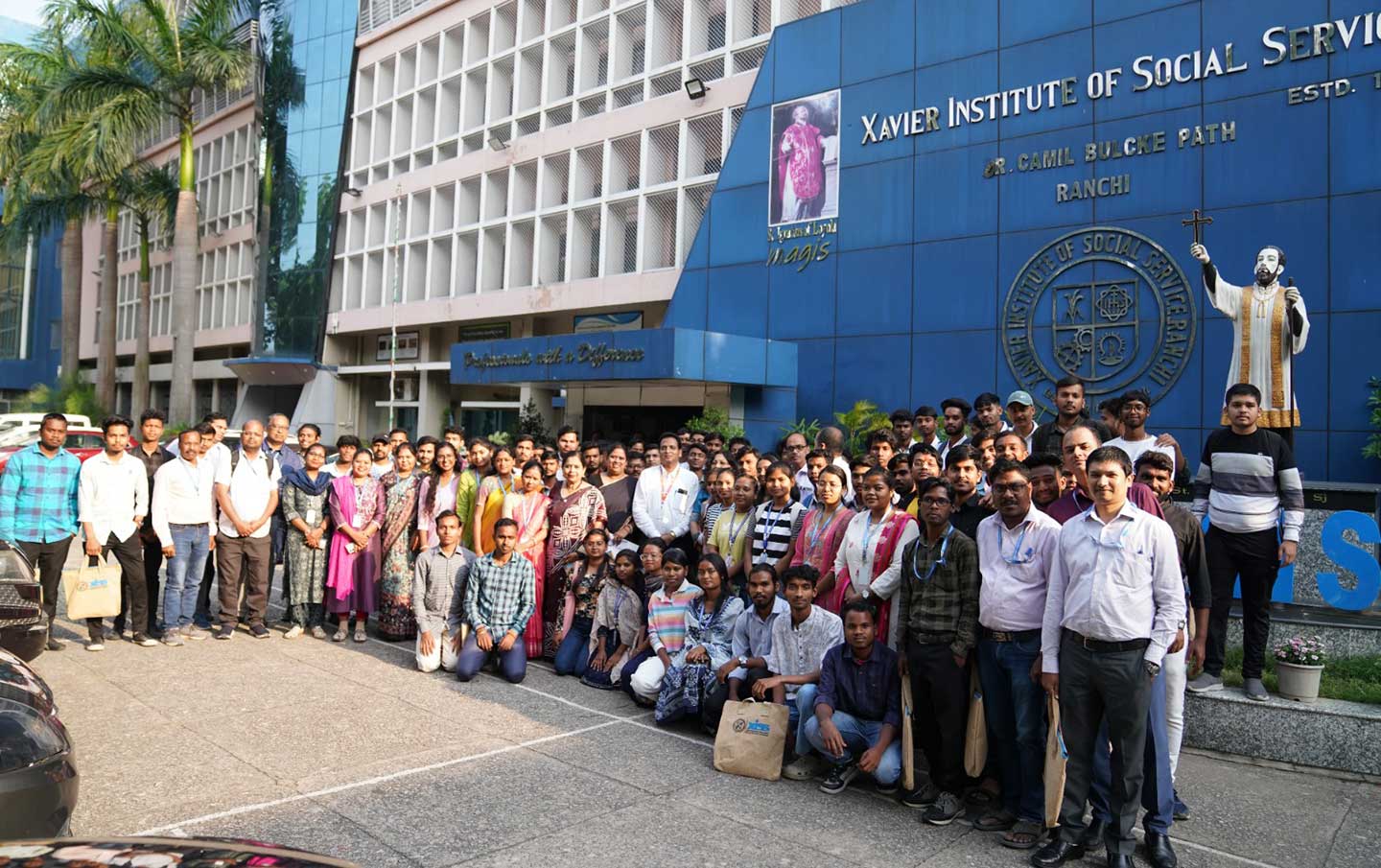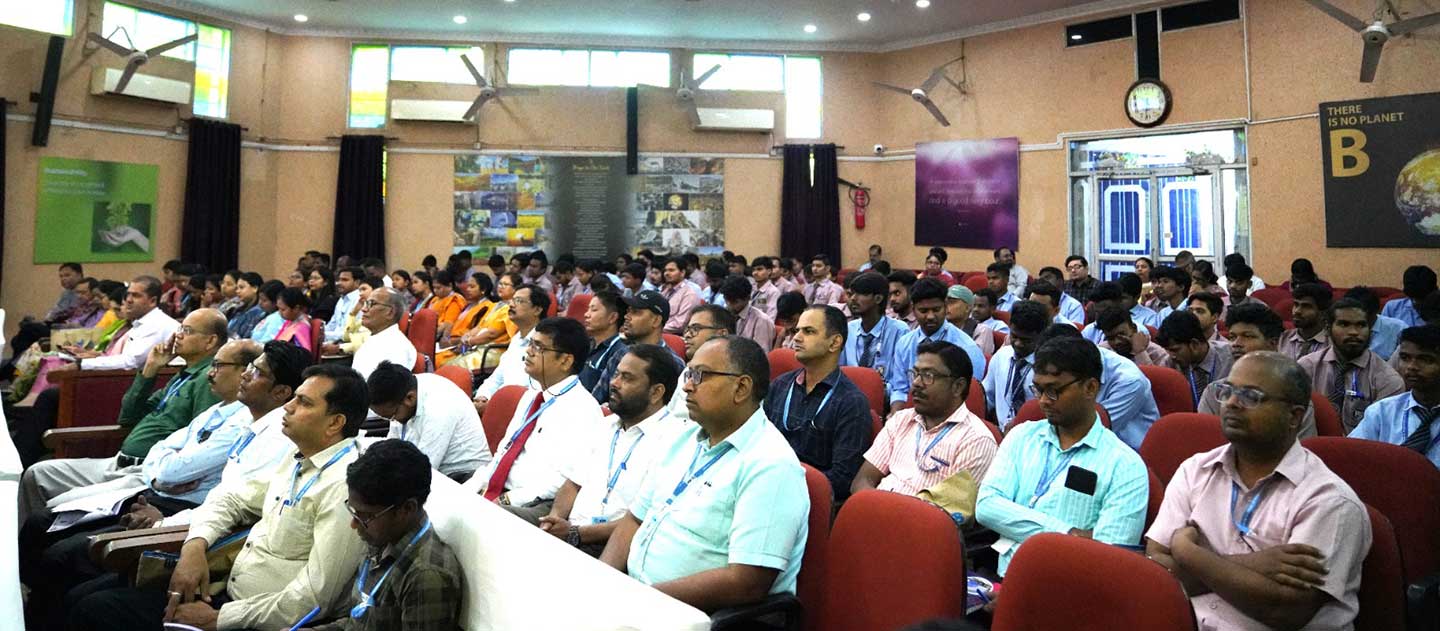National Workshop on “The Old Age: A Blessing or A Burden”

The Xavier Institute of Social Service (XISS), Ranchi, in collaboration with the National Institute of Social Defence (NISD), under the Ministry of Social Justice and Empowerment, Government of India, began a two-day National Workshop titled “The Old Age: A Blessing or A Burden” on 10 April at XISS. Today, the world is facing a demographic shift toward an ageing population, this workshop addressed the dual realities of old age its challenges and opportunities.
As per the 2011 Census, Jharkhand has 23.56 lakh senior citizens, making up 8.4% of its population. The life expectancy at age 60 is 18.1 years for males and 16.8 for females. The old-age dependency ratio stands at 12.7, with a greater burden in rural areas. According to the National Sample Survey, 71% of elderly females and 23% of males in rural areas, and 66% of elderly females and 28% of males in urban areas are fully economically dependent. It is also observed that self-perceived illness rates among Jharkhand’s elderly are lower than the national average.

The workshop began with ceremonial lamp-lighting, followed by a welcome address by Dr Joseph Marianus Kujur SJ, Director, XISS. He emphasized ageing with dignity and inclusion, aligning with XISS’s mission of social justice. Dr Kujur said that ageing is an irreversible reality and an integral part of our culture and values. XISS believes in ageing with grace and upholds a theology of ageing, encouraging a positive outlook toward growing older. It is imperative to highlight three key aspects here: the challenges of getting old, general factors influencing individual ageing, and the socio-economic dimensions, which need our utmost attention now.
Earlier, Dr Sant Kumar, Workshop Coordinator, outlined the need for policy intervention and community engagement given India’s ageing population. The first technical session, delivered by Dr Reeta Kumari, Assistant Professor, Ranchi University, explored the “Role of NGOs in Providing Support Systems for the Elderly.” She highlighted how modernization and migration have isolated seniors, with NGOs stepping in to offer old-age homes, healthcare, counselling, and legal aid and said that we must empower the elderly to thrive, not just survive.

Dr Ashok Kumar Sandil SJ, Coordinator, Xavier Institute of Polytechnic & Technology, discussed the ‘Welfare Measures by the State Government for Senior Citizens’ in the second session. He detailed Jharkhand’s initiatives, including the Sarvajan Pension Yojana and Indira Gandhi National Old Age Pension Scheme, alongside healthcare programs like Rashtriya Vayoshri Yojana. However, he noted rural implementation gaps and called for greater awareness.
In the third session of the day, Dr Kujur offered a “Comprehensive Understanding of the Theme.” Blending cultural and philosophical insights, he described ageing as “a harvest of life lived fully,” urging society to create ecosystems where elders feel valued and active. The final session by Dr Anant Kumar, Head of Rural Management, XISS, focused on “How Senior Citizen Associations Promote Active Ageing.” He showcased how such groups foster social connection, fitness, and skill-building, advocating for more investment to enhance seniors’ well-being.

Day one of the workshop sparked vibrant discussions, shifting perceptions of old age from decline to fulfilment. The workshop on the second day will cover national policies, legal frameworks, intergenerational bonding, and senior care experiences.
On day two, Ms Tanya Sengupta, NISD, provided a comprehensive overview of the National Policy, Acts, Schemes, and Programmes for the Welfare of Senior Citizens. Discussions also touched upon the Maintenance and Welfare of Parents and Senior Citizens Act, 2007, and the ongoing efforts to amend it. Smt Sushila Gupta, CEO, Senior Citizen Home, Ranchi, discussed importance of promoting Day Care Centres as a valuable resource for senior citizens. Ensuring a supportive environment for the elderly is Intergenerational Bonding, and its key factors were discussed by Dr Sharda Singh, Assistant Professor, XISS during the session.

The legal rights and protection mechanisms available to senior citizens were addressed in the session on How Tribunals Work Under the Maintenance and Welfare of Parents and Senior Citizens (MWPSC) Act, 2007, and was led by Dr Indrani Ghatak, Assistant Professor, XISS. She also discussed the functioning of Maintenance and Appellate Tribunals in addressing the physical, emotional, and financial needs of senior citizens.
The workshop aimed to foster a broader understanding of old age, promote intergenerational dialogue, and identify practical tools and resources to support elderly individuals. The day concluded with a take-away and way forward sessions led by Dr Sant Kr. Prasad and Dr Uma C. Saha, followed by a Vote of Thanks and Certificate Distribution. The workshop was coordinated by Dr Uma C Saha, Convenor, while Ms Aayurshi Sahay, Research Associate, XISS moderated the proceedings of both the days.





